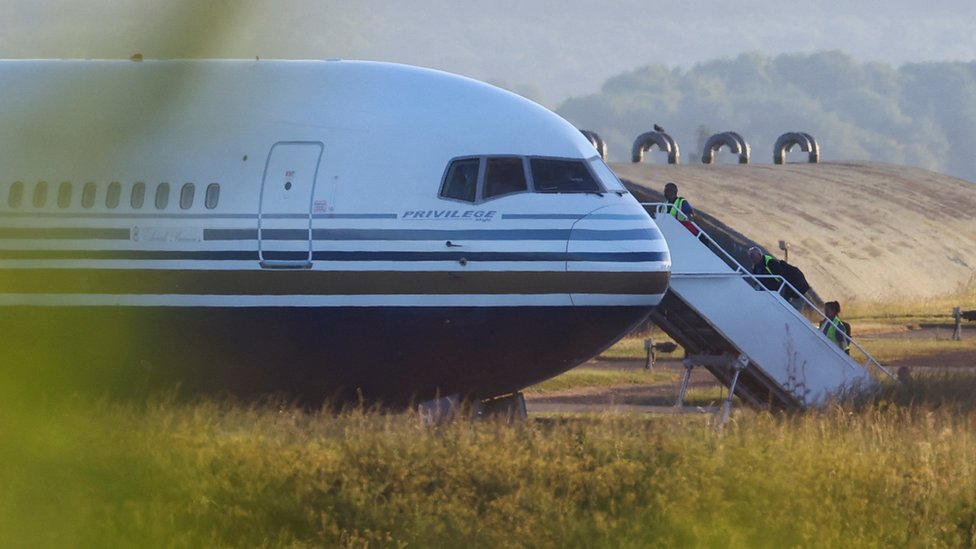The government’s showdown with the House of Lords over its Rwanda deportation bill continues.
Peers have voted to demand changes to the bill, including an amendment which would ban sending people who have assisted the UK military to Rwanda.
Earlier, MPs overturned the latest series of changes to the legislation which were made by the Lords on Monday.
The proposed law is set to deliver the much-delayed plan to send some asylum seekers to the east African nation.
The two Houses of Parliament have been in a protracted stand-off over the final wording of the bill.
The legislation had been expected to clear its final stages on Wednesday, but another vote is now expected on Monday.
Labour continued to press for a ban on sending people who have assisted the UK military to Rwanda, as peers backed his proposal by 247 votes to 195.
Moving that amendment, Labour’s Lord Browne of Ladyton said: “Now is the time to give these people the sanctuary they deserve.”
The Labour peer expressed anger over having been told his change would be accepted, and said the government had u-turned.
“This worthless assurance will not do,” he said, referring to pledges from the minister.
“It’s time they learned the political consequences of their failure not to give either an assurance that is bankable or to accept this amendment because there’s little, if any, support for their failure to do this in this House and there’s surely no majority support in the country to treat these people this way.”
‘Hands are tied’
Another amendment backed by peers says that flights should not take off until a committee of experts set up to monitor the scheme decides Rwanda has fulfilled certain safeguards.
This one, moved by crossbench, or independent, peer Baron Hope of Craighead, passed by 245 to 208.
He was backed by Baroness Chakrabati who said it was a “parliamentary sovereignty amendment” allowing the secretary of state to make a judgement call.
Labour does not have a majority in the Lords but crossbench peers are continuing their opposition.
Prime Minister Rishi Sunak has made the scheme a key part of his plan to stop people crossing the Channel in small boats.
First announced two years ago under Boris Johnson, the programme has been beset by delays.
Legal challenges
The legislation making its way through Parliament was unveiled earlier this year, after the scheme was ruled unlawful by the Supreme Court last year.
In a attempt to resurrect the programme and prevent legal challenges blocking future deportations, it would say Rwanda is a safe country in UK law.
It would also restrict the ability of the courts to block flights on human rights grounds – something ministers argue is necessary step to ensure deportations are not derailed by legal challenges.
But critics say the scheme will put people at risk, and the legislation undermines the independence of the courts.
Labour argues the scheme will not succeed in deterring people from making the journey and has vowed to scrap it if it wins power at the general election.
However, ministers are keen to get the scheme up and running before voters go the polls, expected later this year.
